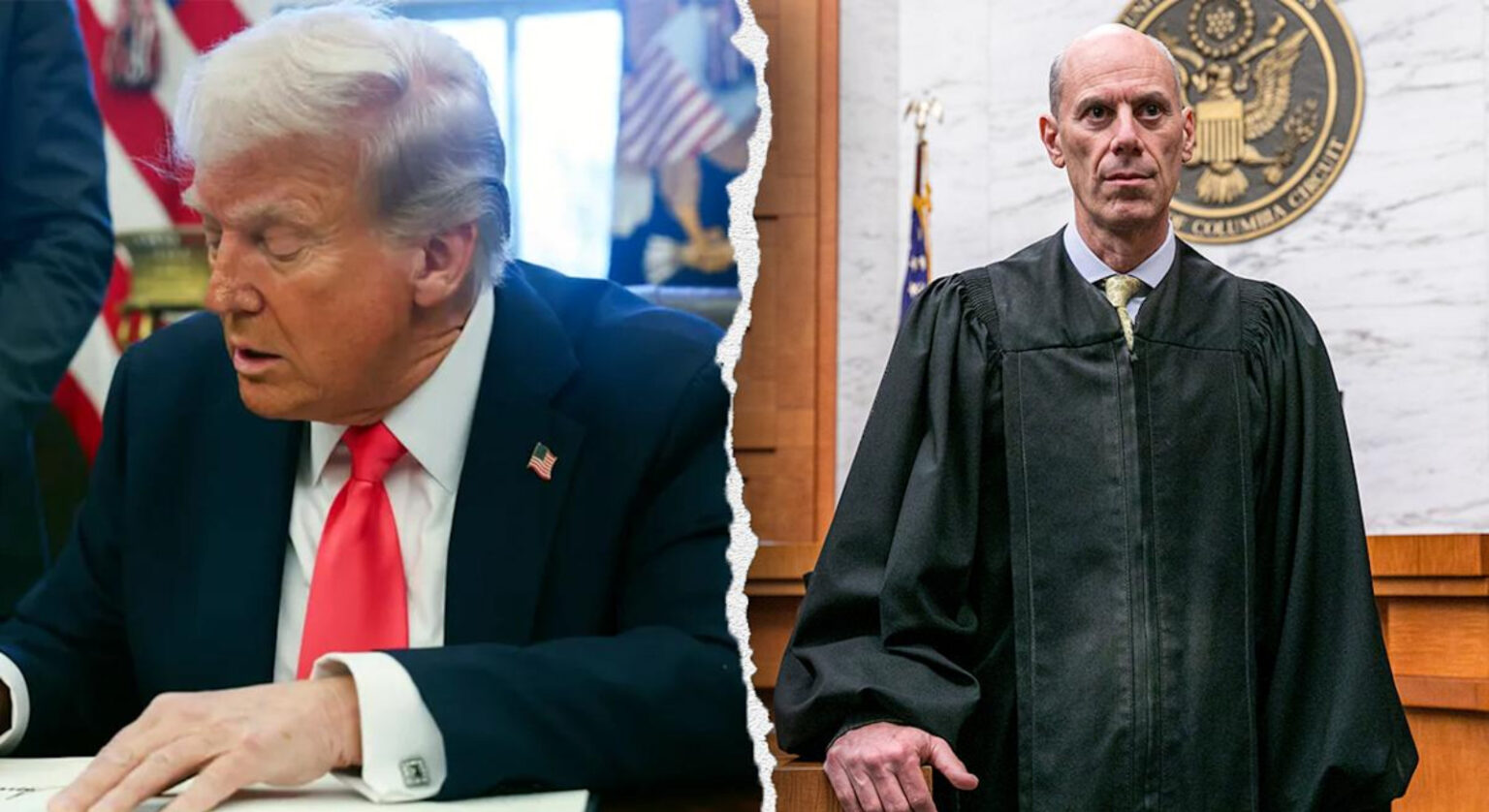A federal judge’s decision to block President Donald Trump’s deportation order targeting Venezuelan gang members in the country illegally has sparked outrage among conservatives, with legal experts warning that it represents an alarming overreach of judicial power. The ruling, issued last week by U.S. District Judge James Boasberg, places a temporary restraining order on Trump’s use of the Alien Enemies Act (AEA) to deport suspected gang members designated as a terrorist organization by his administration.
The decision has been met with fierce criticism, with some conservative voices calling for Boasberg’s impeachment. Fox News legal analyst Greg Jarrett described the ruling as a blatant disregard for Supreme Court precedent, warning that it could set a dangerous precedent for judicial interference in national security matters.
“What’s so troubling about Boasberg’s restraining order is that he is defying the Supreme Court, which reviewed Harry Truman’s use of the Alien Enemies Act after World War II,” Jarrett explained during a segment on Fox News. “The high court affirmed not only the constitutionality of the act but also ruled that it is not subject to judicial review by any judge.”
Jarrett emphasized that when a president invokes the Alien Enemies Act, no court—including the Supreme Court—has the authority to intervene. “Congress granted the president exclusive power to make decisions on national security and foreign policy under the AEA. Boasberg, as a lower court judge, is duty-bound to follow Supreme Court precedent and step aside. Instead, he is brazenly ignoring established law.”
In an op-ed published online last week, Jarrett pointed to a prior Supreme Court ruling that upheld the legality of the AEA and explicitly stated that federal courts have no authority to interfere when a president enforces it. “The AEA permits a president to order the arrest and removal—without a court hearing—of ‘alien enemies’ whenever there is a declared war or any ‘predatory incursion’ against the United States,” Jarrett wrote.
“A predatory incursion is broadly defined as any entry into the U.S. with intentions contrary to national interests or laws, giving a president broad latitude in protecting public safety,” he continued. “In 1948, the Supreme Court upheld President Truman’s use of the AEA, ruling that the law was constitutional (Ludecke v. Watkins, 33 US 160). Crucially, the court stated that a president’s decision under the Act ‘precludes judicial review of the removal order.’ In other words, judges cannot override the president’s authority on this matter.”
The Supreme Court’s decision embraced the “political question doctrine,” which prohibits courts from interfering in presidential decision-making related to foreign affairs and national security. “By analogy,” Jarrett added, “we do not allow judges to halt drone strikes or intelligence operations. The courts must respect the separation of powers.”
Trump has made it clear that he is determined to use every legal tool available to remove illegal immigrants who pose a threat to national security. Recent polling suggests that the American public overwhelmingly supports mass deportations, particularly of individuals involved in organized crime and terrorism. “Over 200 years ago, Congress recognized this threat, which is why it passed a broad law granting the president sole authority to evict enemy aliens,” Jarrett noted. “The Supreme Court reaffirmed this position in saying, ‘This Alien Enemy Act has remained the law of the land, virtually unchanged since 1798.’”
Jarrett concluded his argument by asserting that lower court judges have a constitutional duty to uphold Supreme Court precedent. “On that basis alone, Judge Boasberg’s ruling is incorrect as a matter of law,” he wrote. “His decision is not only legally flawed but also a direct challenge to the president’s constitutional authority to protect the American people.”
As the legal battle unfolds, Trump’s administration is expected to appeal the ruling, with many experts predicting that the case could eventually reach the Supreme Court. The outcome will have significant implications for executive authority, immigration enforcement, and the judiciary’s role in national security policy.
